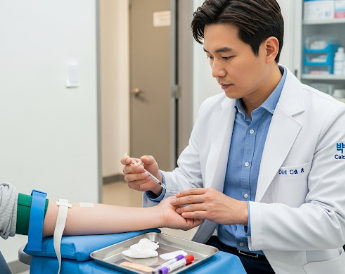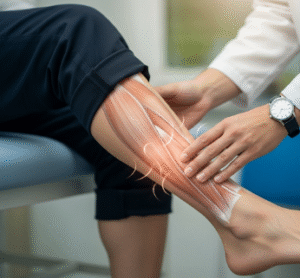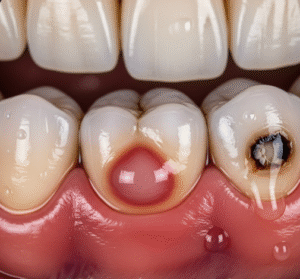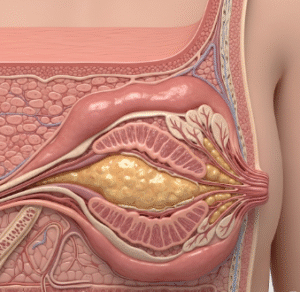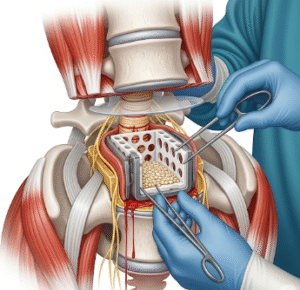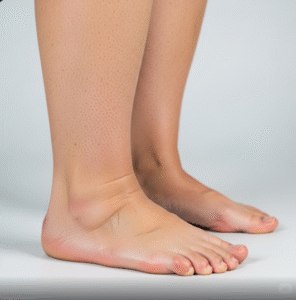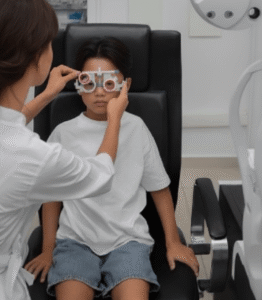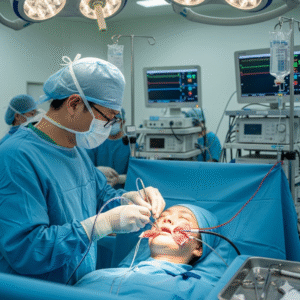Overview
A calcium blood test is a diagnostic procedure used to measure the level of calcium in your blood. Calcium is a vital mineral essential for bone health, muscle function, nerve signaling, and heart rhythm.
In South Korea, calcium blood tests are routinely performed using high-precision laboratory equipment, offering accurate and rapid results. The test helps in detecting conditions like osteoporosis, parathyroid disorders, kidney disease, and vitamin D deficiency. It is a simple, quick, and minimally invasive procedure commonly included in routine health check-ups or targeted diagnostic screenings.
What is a Calcium Blood Test?
A calcium blood test measures total and ionized calcium levels in the blood.
Types of calcium blood tests include:
- Total calcium: Measures both bound (to proteins like albumin) and unbound calcium.
- Ionized calcium: Measures the physiologically active, free calcium in the blood.
- Adjusted calcium: Accounts for protein levels in the blood, especially albumin, for more accurate results.
This test is crucial for monitoring bone health, kidney function, parathyroid activity, and overall metabolic balance.
What are the Benefits?
A calcium blood test provides several diagnostic and health benefits:
✔ Early detection of calcium imbalance, which can affect bones, muscles, and heart.
✔ Monitoring conditions like hypercalcemia (high calcium) or hypocalcemia (low calcium).
✔ Guiding treatment decisions for osteoporosis, kidney disease, or parathyroid disorders.
✔ Simple, safe, and minimally invasive test.
✔ Quick results with high accuracy in South Korean clinics.
✔ Included in preventive health check-ups for early intervention.
Procedure Details
1) How should I prepare for Calcium Blood Test?
- Fasting: Usually not required, but some labs may recommend fasting for 4–8 hours.
- Medication review: Inform your doctor about calcium supplements, vitamin D, or medications that may affect calcium levels.
- Hydration: Drink water to make blood draws easier.
- Avoid alcohol and excessive caffeine before testing.
In Korea, clinics provide pre-test instructions digitally or during consultation, ensuring accurate results.
2) What happens during the procedure Calcium Blood Test?
- A phlebotomist or nurse cleans the skin on your arm with antiseptic.
- A needle is inserted into a vein to collect a small blood sample.
- The procedure typically takes 2–5 minutes.
- For infants or small children, a heel or finger prick may be used.
- The blood sample is sent to a lab for analysis.
Modern Korean laboratories often use automated analyzers with AI-assisted quality control for rapid and reliable results.
3) What happens after a Calcium Blood Test?
- A small bandage is applied to the puncture site.
- Mild bruising or soreness may occur but usually resolves within a day.
- Patients can resume normal activities immediately.
- Results are usually available within hours to 1–2 days depending on the facility.
Many Korean clinics offer digital reporting with detailed explanations, making it easier for patients to understand their results.
Risks / Benefits
Possible Risks:
- ➤ Mild pain, bruising, or swelling at puncture site
- ➤ Lightheadedness or dizziness (rare)
- ➤ Infection (extremely rare with certified laboratories)
Major Benefits:
- ✔ Provides vital information about bone, kidney, and metabolic health
- ✔ Detects calcium imbalances before serious complications develop
- ✔ Supports treatment decisions for chronic conditions
- ✔ Safe, quick, and widely available in Korea
Recovery and Outlook
- No recovery time is needed; patients can resume normal activities immediately.
- Normal results indicate balanced calcium levels and good metabolic health.
- Abnormal results may prompt further investigation, such as vitamin D tests, parathyroid function tests, or bone density scans.
In Korea, calcium blood tests are often included in comprehensive health check-up packages, allowing doctors to provide personalized recommendations for bone and metabolic health.
When To Call the Doctor
Seek medical advice if you experience:
- ➤ Symptoms of high calcium: nausea, vomiting, frequent urination, confusion
- ➤ Symptoms of low calcium: muscle cramps, tingling, numbness, irregular heartbeat
- ➤ Unexpected or abnormal blood test results that require follow-up
Best Korea Option / Process
South Korea provides high-quality calcium blood testing services with:
- State-of-the-art laboratories with fast, accurate analysis
- International patient services, including English explanations and online result access
- Preventive health check-up programs that include calcium and other essential blood tests
- Affordable pricing compared to Western countries
- Expert physicians for follow-up care and personalized health advice
Top Korean hospitals and clinics offering calcium blood tests include:
- Samsung Medical Center
- Asan Medical Center
- Seoul National University Hospital
- Severance Hospital

